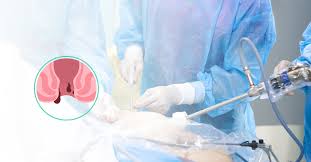Dealing with a fistula can be both painful and stressful, especially when you’re trying to understand your treatment options and associated costs in Singapore. This comprehensive guide covers everything you need to know about fistula surgery, from different procedures available to expected expenses and recovery times.
Understanding Fistula Surgery Options
Singapore offers a bunch of options for dealing with fistulas, depending on how bad it is. If you have a straightforward case, they might just do a fistulotomy, which involves cutting it open and letting it heal on its own. It’s pretty quick—you could be done in about an hour.
But if your fistula is a bit more complicated, they might use a seton. This means putting a small tube in there to help keep things draining and healing slowly.
And if things get really messy—like multiple tracks or sensitive areas—they might go for a more advanced repair, like LIFT or flap repairs. These are for cases where a simple cut won’t do the job.
Treatment Costs in Singapore
If you’re considering getting surgery at a public hospital in Singapore, expect to pay between three to eight thousand dollars. This varies a lot depending on how complex the surgery is and whether you want a basic ward or something nicer. And if you qualify for subsidies, that can really help lower the cost.
On the other hand, private hospitals can be much pricier. You might be looking at $8,000 to $20,000. The upside? You usually get shorter wait times, more comfortable rooms, and the freedom to choose your appointment time.
When it comes to paying, Medisave can cover some of the cost, though there are limits. If you have private insurance, check what’s covered; some plans pay a good amount, while others don’t help much at all. So, be ready to do some math and keep a stress ball handy.
When considering fistula surgery Singapore options, it’s important to factor in additional costs like pre-operative tests, medications, and follow-up appointments. Some surgeons offer package deals that include these extras, making budgeting easier.
Choosing the Right Surgeon
Don’t just choose a surgeon because they show up first on Google or their ads look fancy. You need someone who’s actually performed a lot of colorectal and fistula surgeries—like, not just a few after med school. Take some time to check their background, read patient reviews (look for the honest ones, not just the glowing ones), and see if they’ve got a solid track record.
Many of the top surgeons in Singapore have trained in places like London and the U.S., which is a good sign. And seriously, don’t fall for the low-price trap. This is about your health, not a cheap meal. Your comfort with the surgeon and their skills are way more important than saving a little money. Go with what feels right for you.
Recovery and Follow-up Care
Honestly, for the simple stuff, people usually get back to work in about a week or two, maybe even quicker if they can’t stand to sit still. But if you’re dealing with something more serious, it could take months to fully heal, no kidding. If your surgery was complicated, get ready for more recovery time and a few follow-up visits.
Your doctor will give you a lot of aftercare advice—things like how to take care of the wound, what to avoid, and the signs that mean you should call them. It might seem like a lot, but really, following those guidelines is the best way to heal well and stay out of the doctor’s office. Nobody wants to go through that again, right?
